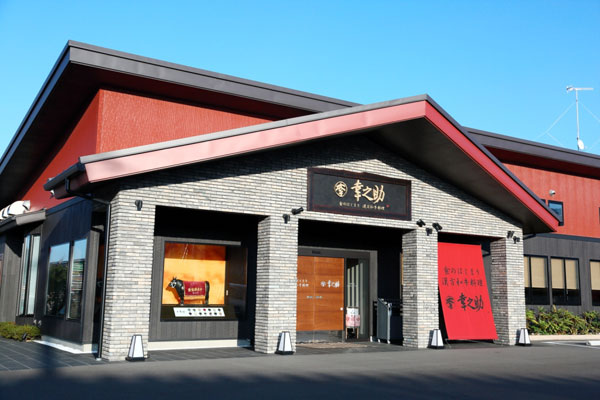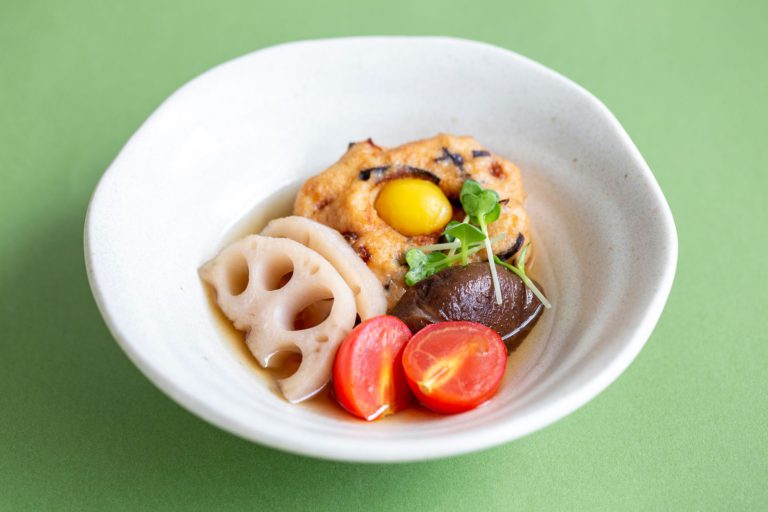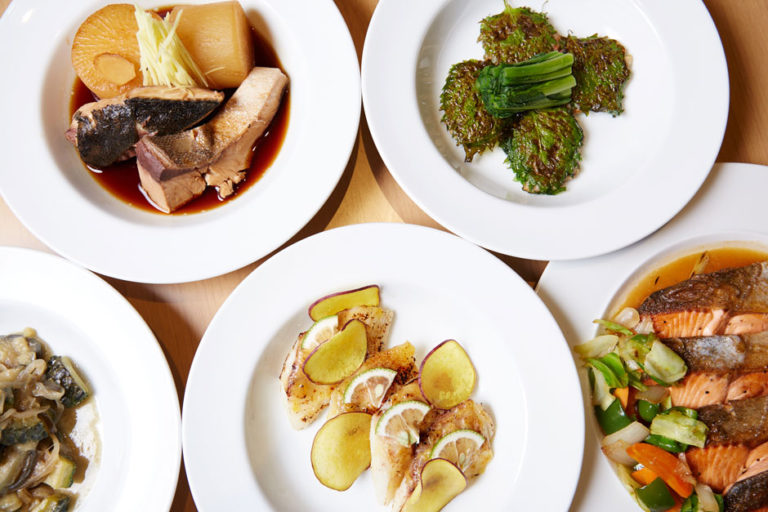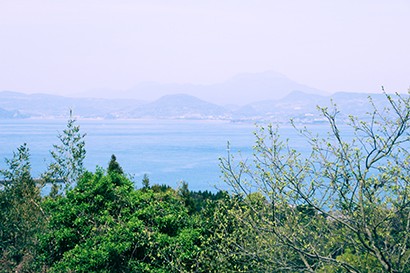The Finest Japanese Brown Wagyu, Raised with the Power of Traditional Chinese medicine
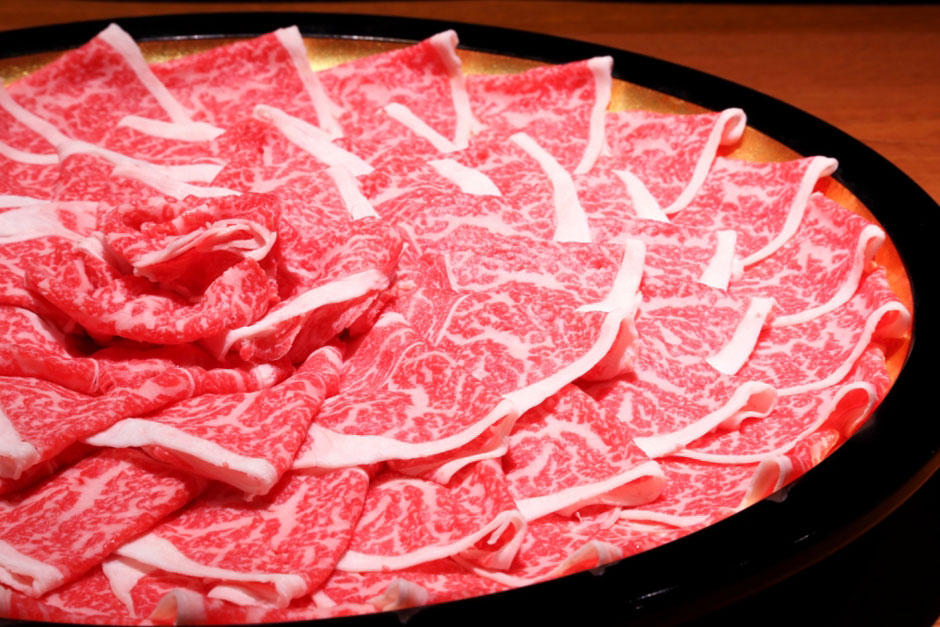
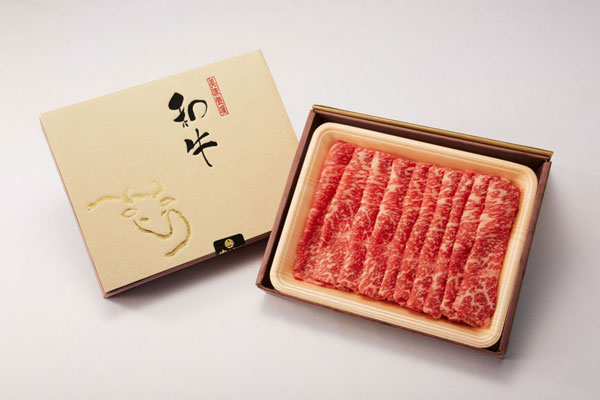
*Package shape varies according to price.
*Packaging design may vary depending on the season.
In the world of brand-name Wagyu, great importance is placed on beef that is marbled with fine strands of fat. Kampo Wagyu, on the other hand, emphasizes natural meat with just the right amount of fat.
In order to achieve this, the cows are raised in a stress-free environment with plenty of love and affection, and are given a specially-created “Kampo” feed that utilizes the natural immune-boosting properties of traditional Chinese medicine. With its moderate fat and beautiful lean meat, Kampo Wagyu may just introduce you to an altogether new way of experiencing Wagyu beef.
The editorial team here at SHUN GATE was lucky enough to receive a box of Kampo Wagyu from NH Foods to try. In this article, we give you our impressions of this product, including taste, appearance and other important considerations.
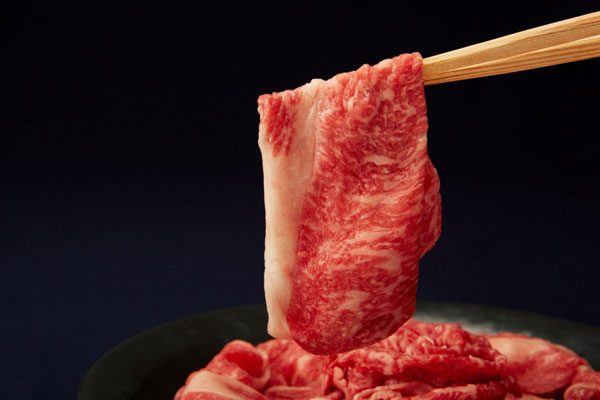
Smooth, delicious fat that melts at mouth temperature
Once you open the luxurious-looking package, emblazoned with a golden cow, laid out neatly inside are thin slices of beef loin. Despite the fact that this part of the cow usually has a lot of fat, the meat is leaner than regular Wagyu beef, with a uniform mesh of moderate fat running through it.
We tried out the Kampo Wagyu by cooking it in sukiyaki. We swiftly fried it in a ready-heated sukiyaki pan, and once the flavor of the sukiyaki stock had seeped into the meat, dipped it into the egg and took a bite. Immediately upon biting into the meat, the fat which has a melting point of just 21.3°C instantly melts in the mouth, and is then slowly followed by a sweet aftertaste. The meat is finely textured and juicy, and the balance of fat and lean meat is exquisite. What surprised us even more was the flavor of the beef, which gently moves through the mouth. This meat is so packed with flavor that you can easily eat up slice after slice of it.
“Health cows make healthy beef”
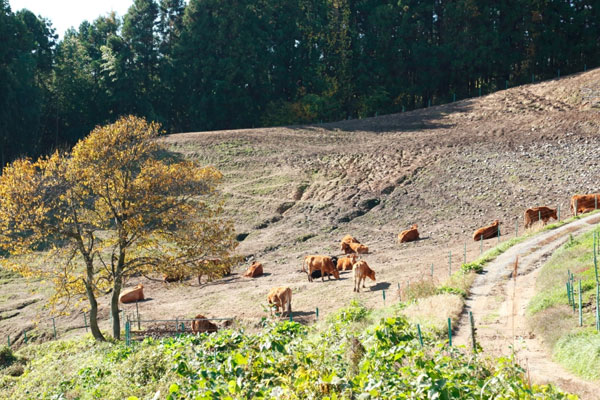
We came to Kurihara-shi in Miyagi to visit Sekimura Farm, where Kampo Wagyu cows are raised in the vast expanse of nature at the foot of Mount Kurikoma. The farm’s method of handling everything from cattle mating to shipping is unusual in the industry. As we head further into the farm, guided by head farmer Kiyoyuki Sekimura, we can see brown cattle grazing on a rugged, steep slope.
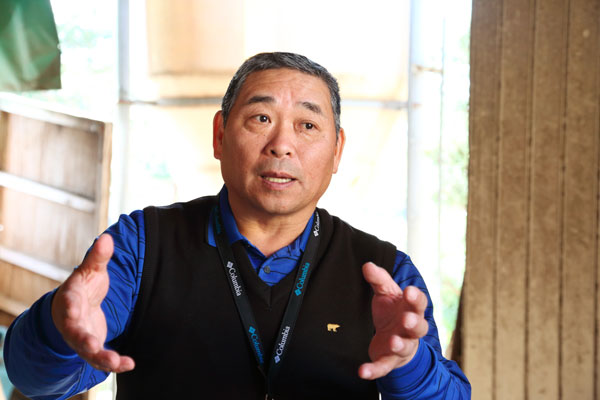
“This slope is what gives the cows their sturdy loins. Wagyu beef is generally associated with black cattle, but the majority of our cows are Japanese Brown Cattle. They have a gentler disposition than black cattle, which makes it easier to raise stress-free cows. In order to make healthy beef, first of all you need healthy cows,” explains Sekimura.
What’s more, although most brand-name beef uses artificially inseminated cows in order to regulate lineage and create the desired marbling effect, Sekimura selects bulls based on his own judgment, and lets the cattle breed and deliver their calves naturally. Then, they’re raised lovingly for around 30 months.
Kampo feed: The end result of a long search
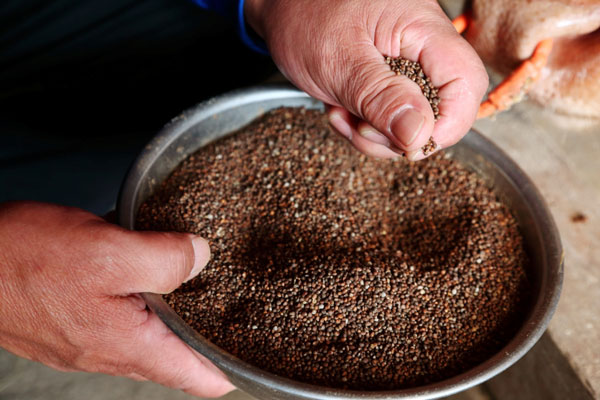
Essential to rearing Kampo Wagyu is the Kampo feed, a blend of 14 different herbs. This is Sekimura’s secret weapon: he created it himself through a long process of trial and error.
Starting from eight months before the cattle are shipped out, they’re given Kampo feed made from a blend of 12 herbs. Then, for the last two months, wild sesame and rice bran are added to the feed, in order to make the meat sweeter and give the fat a low melting point.
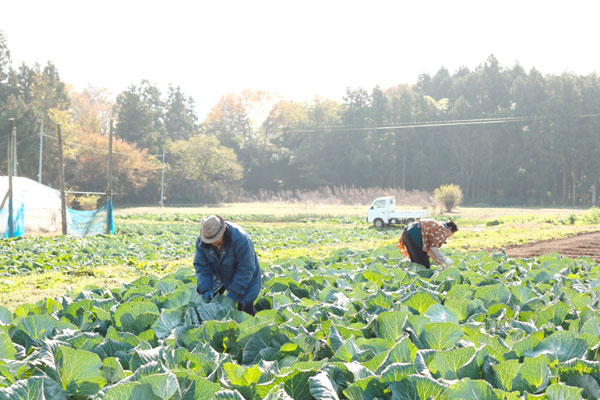
Sekimura spent seven years developing this “Kampo Wagyu” method. “A decade or so ago, when BSE was a big issue, it really hit me that in order to create healthy cows and produce flavorsome beef with an authentic taste, cows need to be reared naturally, in an environment as close as possible to their natural one. Continuing to stick by this belief is what led me to Kampo Wagyu,” explains Sekimura with a proud expression.
What’s more, by using compost created from Kampo Wagyu excrement to grow vegetables and rice, Sekimura Farm aims to establish a system of “circular agriculture,” and their produce has become popular as a local brand. As well as being safe, healthy, and great-tasting, Kampo Wagyu is also helping to create bonds with local farmers in the region.
“Konosuke”: Kampo Wagyu begins to expand
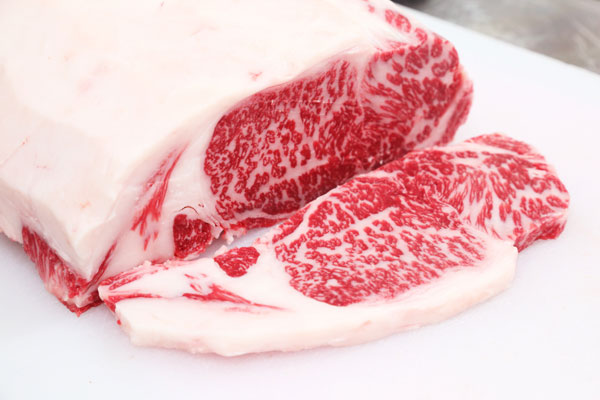
Located on National Route 4, Konosuke is a restaurant, owned by Sekimura Farm, where Kampo Wagyu can be enjoyed in a variety of different dishes. With everything from spacious family tables to private rooms, the restaurant serves a wide spectrum of customers.
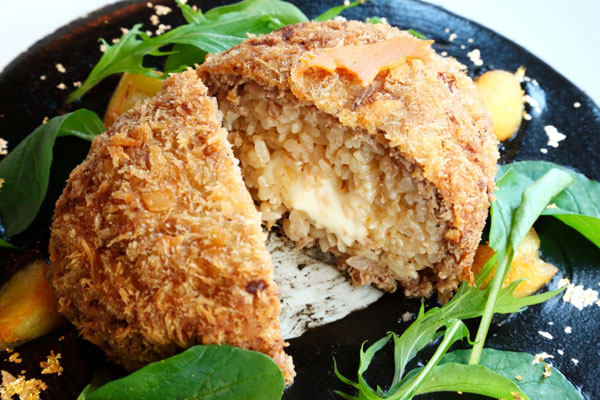
The dishes on offer range from ones that really bring out the natural flavor of the meat such as yakiniku, shabu-shabu, and steak to unique dishes such as “Beef Eggs”, giant rice balls stuffed with mozzarella cheese and coated in mincemeat.
Naturally, the vegetables and rice used here are grown in Kurikoma using Kampo Wagyu compost, and are also available for purchase separately. The restaurant makes it possible to fully experience the benefits of the circular agriculture system based around Kampo Wagyu, and is very popular with local people.
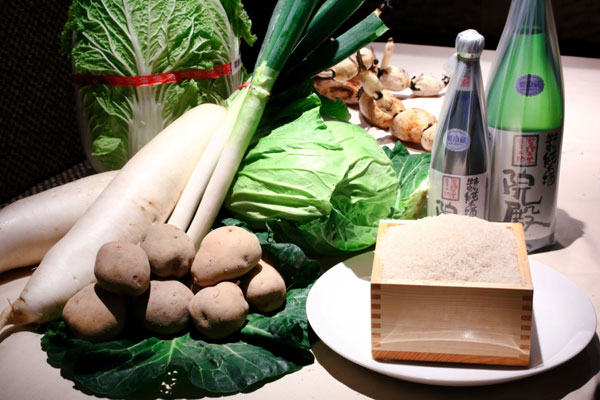
Kampo Wagyu has revolutionized the concept of Wagyu beef, creating a completely new way of looking at it. How about sending some, together with the story of the people who create it, to someone important to you?

